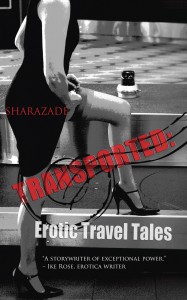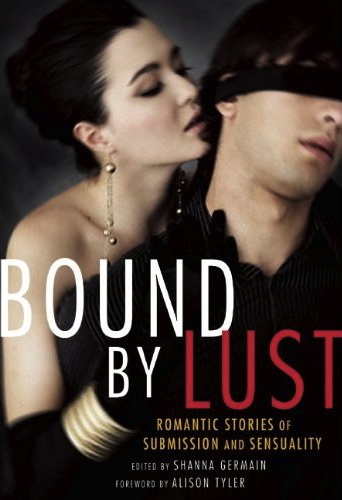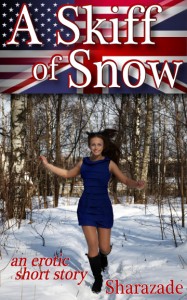I do a lot of my writing in coffee shops, little independently owned places with punny names along the lines of The Daily Grind, The Supreme Bean, Brewed Awakening, Higher Grounds, Brew Ha Ha, Java the Hut. (I wonder if British writers repair for refreshment to tea shops… and would those have cute names too? Tempest in a Teapot? Nooks and Grannies, for the older clientele? CeleBriTea?) The punishment (ha!) continues inside with the tip jars: Support counter intelligence. Afraid of change? Leave yours here! Feeling tipsy? Change is good. Show us your tips.
Erotic book titles often reach for the puns, in a way that Booker prize winners, for example, do not. Some of my favorites (for titles; I haven’t necessarily even read all of these, but their titles caught my eye):
Bottoms Up: Spanking Good Stories (Edited by Rachel Kramer Bussel)
Coming Attractions (S.L. Carpenter, Sahara Kelly)
Foreign Affairs: Erotic Travel Tales (Edited by Mitzi Szereto)
Good Cop, Bad Girl (Paige Tyler)
The Oy of Sex: Jewish Women Write Erotica (edited by Marcy Sheiner)
Rock My Socks Off (a novel in which rocking horses play a role) (Jeremy Edwards)
I don’t struggle so much with story titles; for one thing, it’s a shorter, more unified piece of writing to sum up. Thus, among mine, I have “Sales Pitch” for an encounter that takes place between a salesclerk and a customer; “Layover” for a meeting between flights in an airport; and “Schiphol” takes place in the Amsterdam airport, whose name is—surprise—Schiphol.
But naming a whole book is harder. Something too obscure doesn’t give the reader enough information; “Schiphol” for a whole book gives no indication as to what’s inside. And then, like smart sexy partners with no hang-ups, it seems like the good ones have already been taken. Foreign Affairs was gone, Wanderlust had been used (twice), and someone else had the simple Erotic Travel Tales.
Interestingly, titles of books cannot be copyrighted. So even if someone else has called her book Wanderlust, I am still free to do so. However, authors and publishers avoid this whenever possible, because it helps nobody to have your book confused with someone else’s. You look unoriginal, and your readers could be confused. If they buy someone else’s book instead of yours, you’ve lost your sale, and if they buy yours instead of the one they were really looking for, you’ve lost their good will.
I turned to my friends, thinking it might be easier to pick from a selection than to invent my own. Travel Sex? Too blunt. Jet Shagged? Too silly. Around the World in Eighty Ways? (“You could call your character Family Jules or Fellatio Fogg!” said the friend who suggested this one). And then finally…. Transported. It just felt right. It included travel, and it included sex without being too obvious. Definitions for transport range from “move something or somebody around; usually over long distances” to “ecstasy: a state of being carried away by overwhelming emotion” to “enchant: hold spellbound.”
Writers often use the metaphor of giving birth to explain how they feel about creating a book. I’d draw a parallel with names there, too. If you ask your friends what they think of your baby name before the child arrives, you might hear some negative opinions: “I worked with a Judy once; she was a total bitch.” “I had a cousin Judy—she died young.” But when you announce the birth of your child, everyone is supportive: “Oh, that’s a beautiful name.” “My favorite aunt was called Judy—a lovely, intelligent woman.”
Before its publication, I heard that Transported was too subtle a title, and also that it was too obvious. Once it came out, though, people just said that it was a nice catchy title. Thank you! It’s my baby, and I love her.
I have my next title already, actually. But I’m keeping it secret.





